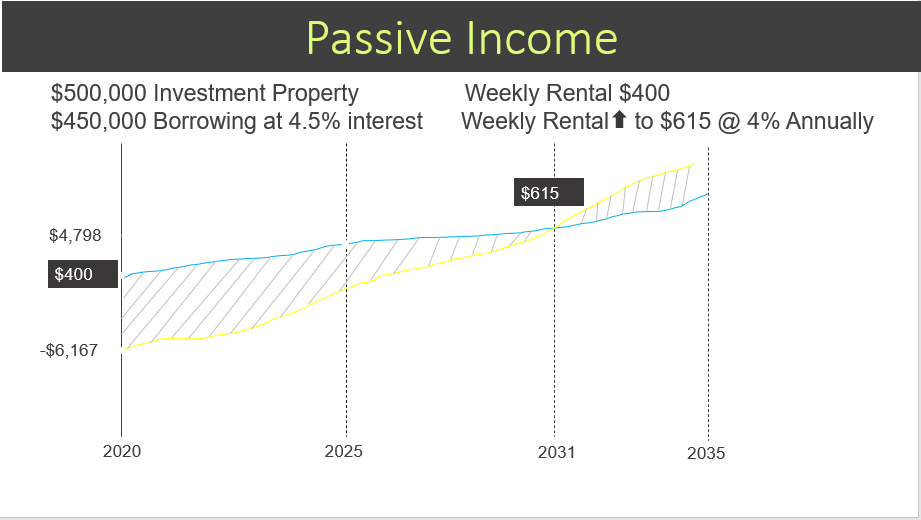How to Use Real Estate to Generate Passive Income is an exciting topic that invites individuals to explore the wealth-building potential within the property market. As the demand for passive income streams grows, real estate stands out as a viable option for many. Whether you’re a seasoned investor or a beginner, understanding the nuances of this field can empower you to make informed decisions that lead to financial freedom.
With various strategies available, from rental properties to real estate investment trusts (REITs), there’s a method that suits every investor’s goals and risk tolerance. This overview will delve into the essential elements of leveraging real estate effectively to create sustainable passive income.
In today’s fast-paced world, where technology and innovation seem to evolve overnight, it is essential for individuals and businesses alike to stay informed and adapt to these changes. This article delves into the significance of continuous learning and how it can enhance personal growth and career development. By cultivating a mindset geared towards learning, one can not only keep pace with the current trends but also foster resilience in the face of challenges.### The Importance of Continuous LearningContinuous learning is the ongoing, voluntary, and self-motivated pursuit of knowledge for personal or professional development.
Unlike traditional learning, which often occurs in structured settings, continuous learning encompasses a broader range of knowledge acquisition methods, including self-study, online courses, workshops, and even informal experiences.#### Adaptability in a Changing EnvironmentOne of the most compelling reasons to engage in continuous learning is the rapid pace of change in almost every industry. The rise of technology, especially artificial intelligence and automation, has transformed the job landscape.
Skills that were once in high demand may become obsolete in a matter of years. By committing to continuous learning, individuals can adapt their skills to meet the evolving needs of the job market.For instance, consider the field of marketing. With the advent of digital platforms, traditional marketing strategies have been significantly altered. Marketers now need to be adept in data analytics, , and social media management.

Those who embrace continuous learning can easily shift their strategies and remain competitive in their profession.#### Personal Growth and DevelopmentContinuous learning is not limited to professional advancement; it also plays a crucial role in personal growth. Engaging in new learning experiences can enhance cognitive functions, improve problem-solving skills, and boost self-confidence. When individuals challenge themselves to learn something new, whether it’s a language, a musical instrument, or a new hobby, they expand their horizons and develop a sense of achievement.Moreover, continuous learning encourages curiosity.
In a world saturated with information, the ability to question, analyze, and synthesize knowledge is invaluable. This intellectual curiosity not only enriches one’s life but also fosters a deeper understanding of the world and its complexities.### Methods of Engaging in Continuous LearningThere are numerous ways to integrate continuous learning into your life. Here are some effective methods to consider:#### Online Courses and CertificationsThe internet has made learning more accessible than ever before.
Platforms such as Coursera, Udemy, and LinkedIn Learning offer a plethora of courses on various topics, from coding to photography to business management. Many of these courses are taught by industry professionals and include certifications that can enhance a résumé.#### Workshops and SeminarsAttending workshops and seminars can provide hands-on experiences that are often more engaging than traditional learning. These events allow for networking opportunities as well, where participants can connect with like-minded individuals and industry experts.#### Reading and ResearchBooks, articles, and research papers are excellent resources for continuous learning.
Reading widely not only improves knowledge on specific subjects but also broadens vocabulary and enhances critical thinking skills. Setting aside time each week to read can create a habit of lifelong learning.#### Mentorship and NetworkingFinding a mentor in your field can provide invaluable insights and guidance. Mentors can share their experiences, offer advice, and help navigate career challenges. Networking with professionals in your industry can also open doors to learning opportunities and collaborations.#### Engaging in HobbiesPursuing hobbies can be an effective way to learn and grow.
Whether it’s painting, cooking, or hiking, engaging in activities outside of one’s professional life can stimulate creativity and provide a refreshing break from routine. Many hobbies require skill development and can lead to personal fulfillment.### Overcoming Barriers to Continuous LearningWhile the benefits of continuous learning are clear, many individuals face barriers that may hinder their commitment to lifelong education. Common obstacles include time constraints, financial limitations, and a lack of motivation.
Here are some strategies to overcome these barriers:#### Time ManagementOne of the primary reasons people cite for not engaging in continuous learning is a lack of time. To tackle this, individuals can prioritize their schedules. Setting aside specific times for learning, even if it’s just 15 minutes a day, can lead to significant progress over time. Utilizing tools such as calendars and task management apps can help in allocating time effectively.#### Budgeting for LearningFinancial constraints can also pose a challenge.
However, many free or low-cost resources are available for those willing to explore. Public libraries often have access to a wide range of books and online resources. Additionally, many platforms offer free trials or scholarships for courses, making learning more affordable.#### Building a Support SystemHaving a support system can greatly enhance motivation. Sharing learning goals with friends, family, or colleagues can create accountability.
Joining study groups or learning communities can provide encouragement and foster a collaborative learning environment.### The Role of Organizations in Supporting Continuous LearningOrganizations play a crucial role in fostering a culture of continuous learning among employees. Companies that prioritize employee development often see increased productivity, job satisfaction, and retention rates. Here are some ways organizations can support continuous learning:#### Providing Training and Development ProgramsInvesting in employee training programs demonstrates a commitment to growth.
Organizations can offer workshops, online courses, or access to conferences that cater to employees’ development needs. This not only enhances employees’ skills but also boosts morale and loyalty.#### Encouraging Knowledge SharingCreating a culture where employees feel comfortable sharing their knowledge and experiences can lead to a collaborative learning environment. This could include regular meetings where team members present findings, best practices, or new skills they have acquired.#### Allowing Flexibility for LearningWorkplaces that embrace flexible schedules can empower employees to pursue learning opportunities without feeling overwhelmed.
Allowing time for online courses or workshops during work hours can lead to improved work-life balance and increased enthusiasm for learning.### Conclusion: Embracing a Learning MindsetIn conclusion, the significance of continuous learning cannot be overstated. Whether for personal enrichment or professional advancement, committing to a learning mindset opens doors to new opportunities and experiences. By embracing this journey, individuals can remain relevant in an ever-changing world, enhance their skills, and foster a sense of fulfillment.
In a society that values knowledge and adaptability, the ability to learn continuously is not just an advantage; it is a necessity. So, take that first step. Whether it’s signing up for an online course, picking up a new book, or attending a workshop, remember that the journey of learning never truly ends. Embrace the process, and let your curiosity lead the way.
Q&A: How To Use Real Estate To Generate Passive Income
What are the best types of properties for passive income?
Single-family homes, multi-family units, and commercial properties are often considered the best options for generating passive income.
How much capital do I need to start investing in real estate?
It varies based on market conditions and property types, but having at least 20% of the property’s value for a down payment is a common starting point.
Is it necessary to be a landlord to generate passive income from real estate?
No, alternatives like real estate investment trusts (REITs) allow you to invest in real estate without the responsibilities of being a landlord.
Can I invest in real estate without prior experience?
Yes, many resources and professionals are available to guide you through your first investment, making it accessible for beginners.
What are the tax benefits of real estate investments?
Investors can benefit from deductions on mortgage interest, depreciation, and certain expenses related to property management, which can lower tax liabilities.






